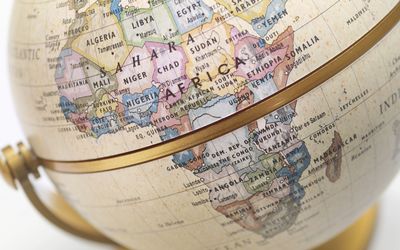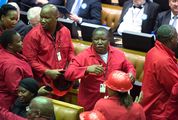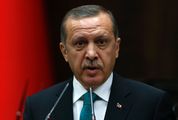WTO’s record boosts its hand in talks
by Roberto Azevêdo,
2016-03-16 05:47:22.0
IN MAY 1998, a constellation of leaders from around the world gathered in Geneva to mark the 50th anniversary of the global trading system and the recent creation of its guardian, the World Trade Organisation (WTO).
The leaders reflected on the value of a framework of multilateral rules that brought stability and greater equity to the global economy, but also pressed each other to do more.
"We are firmly of the belief that the existence of the GATT (General Agreement on Tariffs and Trade), and now the WTO, as a rules-based system, provides the foundation on which our deliberations can build in order to improve. However, to realise the aspirations of all requires wise work to be done," said Nelson Mandela, SA’s president at the time.
Nearly two decades on, Mandela’s words continue to ring true. But now, as then, the WTO is entering a period of transition and reflection. Now, as then, delegations are debating how to advance negotiations in central areas such as agriculture, manufacturing and services trade, and what other issues could also be discussed and negotiated in the near future.
One important difference between 1998 and today, however, is that the WTO now has a record of sustained achievement in negotiations, dispute-resolution and the monitoring of trade policies and trends. And recently, this record has gained added lustre. In 2013, at the WTO ministerial meeting in Bali, Indonesia, members struck a deal to slash red tape and border delays, cutting costs and creating opportunities to lift global exports by more than $1-trillion. The lion’s share of these gains will accrue to developing countries, while the poorest countries would benefit most of all.
Full implementation of the agreement, moreover, would enable developing countries to increase by up to 20% the number of new products they export and to enter about 40% more foreign markets.
WTO ministers reconvened in December in Nairobi, Kenya, for the first WTO ministerial conference held on African soil. In Nairobi, ministers brokered a series of agreements that tackle African concerns. In abolishing all forms of agricultural export subsidies and creating trading opportunities for services providers and manufacturers in the world’s poorest countries, WTO ministers delivered results sought by African governments for many years.
In addition, by taking this action on agricultural export subsidies we delivered on a key element of the United Nations Sustainable Development Goals, which had been set just three months before. Members also pledged in Nairobi to work during the next two years to negotiate agreements related to the public stockholding of grains for food security purposes and to develop a mechanism that would permit developing countries temporarily to slow import surges of agricultural products when local farmers are under threat.
While the results of Nairobi were gratifying, there were important issues on which ministers could not agree. For 14 years, members had been seeking to negotiate new rules and market-openings in agriculture, manufactured goods and services in the context of the Doha Development Agenda. In Nairobi, no consensus could be reached on whether the negotiations on the Doha issues should continue as before, or whether a fresh approach would be needed. Also, some members expressed a desire to discuss a number of other emerging-trade issues.
Members have decided to reflect on how these differences might be overcome and how we might move the WTO agenda forward. The good news is that all members support the notion that we need to continue work on the Doha issues — agriculture, manufactured goods, services and fishery subsidies among them. And all members have again committed to maintaining development at the very heart of the WTO’s work.
This is an opportunity to ensure that the future path of global trade talks serves SA’s development goals. I am visiting SA this week to discuss these issues.
• Azevêdo is director-general of the World Trade Organisation

Picture: THINKSTOCK
IN MAY 1998, a constellation of leaders from around the world gathered in Geneva to mark the 50th anniversary of the global trading system and the recent creation of its guardian, the World Trade Organisation (WTO).
The leaders reflected on the value of a framework of multilateral rules that brought stability and greater equity to the global economy, but also pressed each other to do more.
"We are firmly of the belief that the existence of the GATT (General Agreement on Tariffs and Trade), and now the WTO, as a rules-based system, provides the foundation on which our deliberations can build in order to improve. However, to realise the aspirations of all requires wise work to be done," said Nelson Mandela, SA’s president at the time.
Nearly two decades on, Mandela’s words continue to ring true. But now, as then, the WTO is entering a period of transition and reflection. Now, as then, delegations are debating how to advance negotiations in central areas such as agriculture, manufacturing and services trade, and what other issues could also be discussed and negotiated in the near future.
One important difference between 1998 and today, however, is that the WTO now has a record of sustained achievement in negotiations, dispute-resolution and the monitoring of trade policies and trends. And recently, this record has gained added lustre. In 2013, at the WTO ministerial meeting in Bali, Indonesia, members struck a deal to slash red tape and border delays, cutting costs and creating opportunities to lift global exports by more than $1-trillion. The lion’s share of these gains will accrue to developing countries, while the poorest countries would benefit most of all.
Full implementation of the agreement, moreover, would enable developing countries to increase by up to 20% the number of new products they export and to enter about 40% more foreign markets.
WTO ministers reconvened in December in Nairobi, Kenya, for the first WTO ministerial conference held on African soil. In Nairobi, ministers brokered a series of agreements that tackle African concerns. In abolishing all forms of agricultural export subsidies and creating trading opportunities for services providers and manufacturers in the world’s poorest countries, WTO ministers delivered results sought by African governments for many years.
In addition, by taking this action on agricultural export subsidies we delivered on a key element of the United Nations Sustainable Development Goals, which had been set just three months before. Members also pledged in Nairobi to work during the next two years to negotiate agreements related to the public stockholding of grains for food security purposes and to develop a mechanism that would permit developing countries temporarily to slow import surges of agricultural products when local farmers are under threat.
While the results of Nairobi were gratifying, there were important issues on which ministers could not agree. For 14 years, members had been seeking to negotiate new rules and market-openings in agriculture, manufactured goods and services in the context of the Doha Development Agenda. In Nairobi, no consensus could be reached on whether the negotiations on the Doha issues should continue as before, or whether a fresh approach would be needed. Also, some members expressed a desire to discuss a number of other emerging-trade issues.
Members have decided to reflect on how these differences might be overcome and how we might move the WTO agenda forward. The good news is that all members support the notion that we need to continue work on the Doha issues — agriculture, manufactured goods, services and fishery subsidies among them. And all members have again committed to maintaining development at the very heart of the WTO’s work.
This is an opportunity to ensure that the future path of global trade talks serves SA’s development goals. I am visiting SA this week to discuss these issues.
• Azevêdo is director-general of the World Trade Organisation
























Change: 1.19%
Change: 1.36%
Change: 2.19%
Change: 1.49%
Change: -0.77%
Data supplied by Profile Data
Change: -0.19%
Change: 0.69%
Change: 1.19%
Change: 0.00%
Change: 0.44%
Data supplied by Profile Data
Change: 0.62%
Change: 0.61%
Change: 0.23%
Change: 0.52%
Change: 0.12%
Data supplied by Profile Data
Change: -0.21%
Change: -1.22%
Change: -0.69%
Change: -0.51%
Change: 0.07%
Data supplied by Profile Data